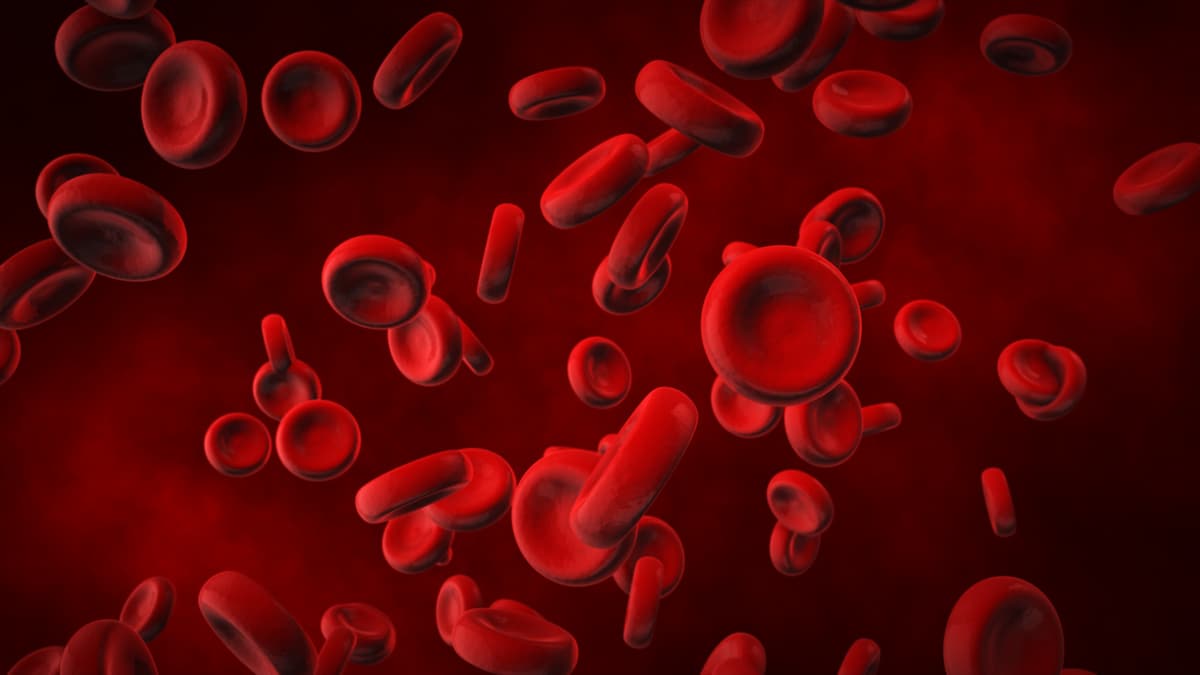FDA Receives New Drug Application for Imetelstat in MDS
The new drug application for imetelstat is based on findings from the phase 3 IMerge trial, in which the telomerase inhibitor outperformed placebo in the treatment of transfusion-dependent anemia.
Imetelstat is used to treat patients who are relapsed or refractory to or ineligible for erythropoiesis-stimulating agents.

A new drug application (NDA) for imetelstat, a telomerase inhibitor used to treat transfusion-dependent anemia in patients with low- to intermediate-1–risk myelodysplastic syndromes (MDS), has been submitted to the FDA, according to a recent press release from Geron Corporation.1
Imetelstat is used to treat patients who are relapsed or refractory to or ineligible for erythropoiesis-stimulating agents (ESAs). Supporting data for the submission came from phase 3 findings of the phase 2/3 IMerge trial (NCT02598661), in which imetelstat yielded a significantly higher rate of 8-week transfusion independence than placebo (P <.001).
Additionally, imetelstat produced a median transfusion independence duration of approximately 1 year among those who responsed at 8 weeks. Over time, mean hemoglobin levels also increased significantly in patients treated with imetelstat rather than placebo (P <.001). Investigators also reported clinically meaningful efficacy results across key subgroups, including those stratified according to ring sideroblast status, baseline transfusion burden, and International Prostate Symptom Score risk category.
The safety profile of imetelstat in the IMerge trial was comparable with prior clinical experience. Investigators presented these findings at the 2023 American Society of Clinical Oncology (ASCO) Annual Meeting.2
“This pioneering achievement to submit the first [NDA[ to the FDA for a telomerase inhibitor reflects the dedication, commitment and teamwork of so many people who believed targeting telomerase could make a significant difference for patients,” John A. Scarlett, MD, chairman and chief executive officer at Geron, said in the press release. “We are deeply committed to addressing the unmet needs for lower risk patients [with MDS] who often [experience] transfusion-dependent anemia.”
Imetelstat is designed to impede the uncontrolled proliferation of malignant stem and progenitor cells in myeloid hematologic malignancies, resulting malignant cell apoptosis and disease-modifying activity.
The double-blind phase 3 portion of the IMerge trial assessed the agent in 178 patients across North America, Europe, the Middle East, and Asia, who were randomly assigned 2:1 to receive either the experimental or placebo regimens. Treatment consisted of intravenous imetelstat delivered every 4 weeks at a dose of 7.5 mg/kg, or a matched placebo.
The primary end point, 8-week transfusion independence, was defined as the proportion of patients who undergo no red blood cell transfusion for any period of 8 consecutive weeks. Key secondary end points included the rate of 24-week transfusion independence, duration of independence, and the rate of hematologic improvement, defined as a hemoglobin rise of 1.5 g/dL or more above pretreatment levels for at least 8 weeks, or a reduction in red blood cell transfusion burden of at least 4 units over 8 weeks.
Patients who did not receive prior treatment with a hypomethylating agent or lenalidomide (Revlimid) were eligible for inclusion on the trial. Transfusion dependence, another requirement for inclusion, was defined as requiring 4 or more units of packed red blood cells over any 8-week period during the 16 weeks prior to entry.
Exclusion criteria included any prior receipt of corticosteroids at a dosage greater than 30 mg per day of prednisone or equivalent. Patients who received growth factor treatment within 4 weeks prior to entry were also excluded.
References
- Geron announces submission of new drug application to FDA for first-in-class telomerase inhibitor imetelstat. News release. Geron Corporation. June 20, 2023. Accessed June 21, 2023. https://bit.ly/3CFbD8l
- Zeidan AM, Platzbecker U, Santini V, et al. IMerge: Results from a phase 3, randomized, double-blind, placebo-controlled study of imetelstat in patients (pts) with heavily transfusion dependent (TD) non-del(5q) lower-risk myelodysplastic syndromes (LR-MDS) relapsed/refractory (R/R) to erythropoiesis stimulating agents (ESA). J Clin Oncol. 2023;41(suppl 16):7004. doi:10.1200/JCO.2023.41.16_suppl.7004